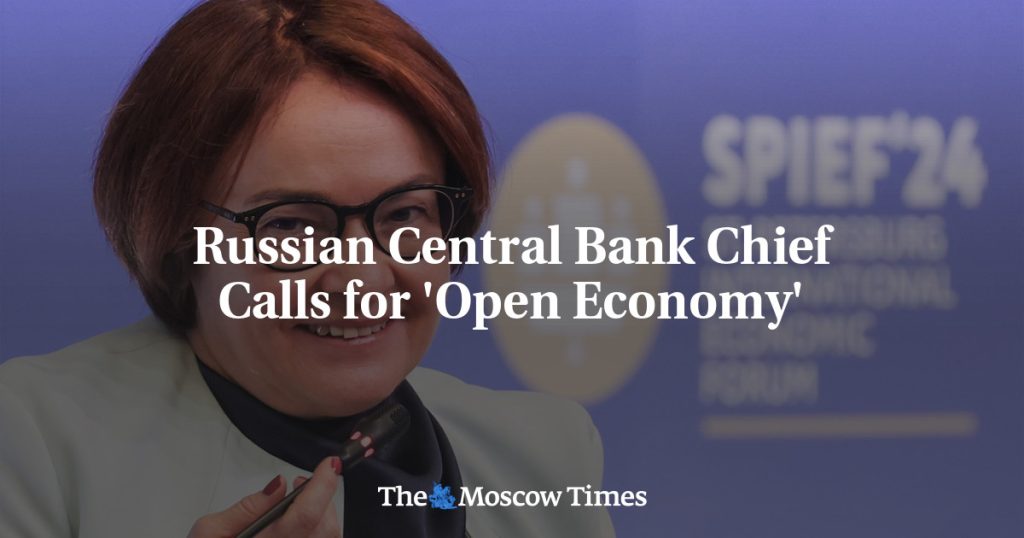Despite facing Western sanctions and trading restrictions due to the invasion of Ukraine, Russia’s central bank chief, Elvira Nabiullina, emphasized the importance of Russia remaining an “open economy” at the Saint Petersburg International Economic Forum. The forum, which has traditionally attracted leading Western businesspeople, investors, and officials, has now shifted its focus towards Asia and Africa to reflect Moscow’s isolation from its Western allies. Nabiullina stressed the need for Russia to integrate its economy into the world economy, even amidst ongoing sanctions.
The sanctions imposed on Russia have significantly impacted its participation in the international financial system and led to the loss of lucrative energy partnerships with Western countries. Many Western companies have also withdrawn from Russia since the invasion of Ukraine. Finance Minister Anton Siluanov, speaking alongside Nabiullina, took a different approach by advocating for the need to enhance Russia’s “financial sovereignty.” He emphasized the importance of working towards this goal in the coming years, while Nabiullina highlighted the need to develop capital markets and ensure that planned tax increases do not deter investment.
The stance taken by Russian authorities at the economic forum illustrates the challenges the country faces in terms of integrating into the global economy while dealing with the impact of sanctions. The shift towards prioritizing financial sovereignty reflects Russia’s efforts to mitigate the effects of these sanctions on its economy. Despite the hurdles posed by Western sanctions, Russian officials are seeking ways to enhance the country’s economic stability and attract investment by focusing on developing capital markets and creating a favorable investment climate.
The Moscow Times, an independent news source that has been labeled a “foreign agent” by the Russian government, highlights the challenges faced by media organizations in Russia in providing accurate and unbiased reporting. The efforts to silence independent journalism have raised concerns about the integrity of journalism and the freedom of the press in the country. The journalists at The Moscow Times remain committed to delivering accurate reporting on Russia, but they require support to continue their critical mission. Donations from readers can help sustain independent journalism and uphold the values of transparency and freedom of the press.
The ongoing tensions between Russia and Western countries have created a challenging environment for economic cooperation and trade. The imposition of sanctions has disrupted economic relations and led to Russia seeking alternative partnerships in Asia and Africa. The diversification of economic ties reflects Russia’s efforts to reduce its dependence on Western markets and navigate the challenges posed by the sanctions. Despite facing isolation from Western allies, Russia is exploring opportunities to enhance its economic resilience and maintain its position in the global economy.
In conclusion, Russia’s participation in the international economic forum and the discussions on economic openness and financial sovereignty highlight the complexities of its economic situation in the face of Western sanctions. The country’s efforts to balance integration into the world economy with the need for financial stability demonstrate a multifaceted approach to addressing the challenges posed by sanctions. While facing isolation from Western allies, Russia is exploring ways to enhance its economic resilience and attract investment to sustain its position in the global economy. Continued support for independent journalism and open dialogue will be crucial in promoting transparency and upholding the values of a free press in Russia.


